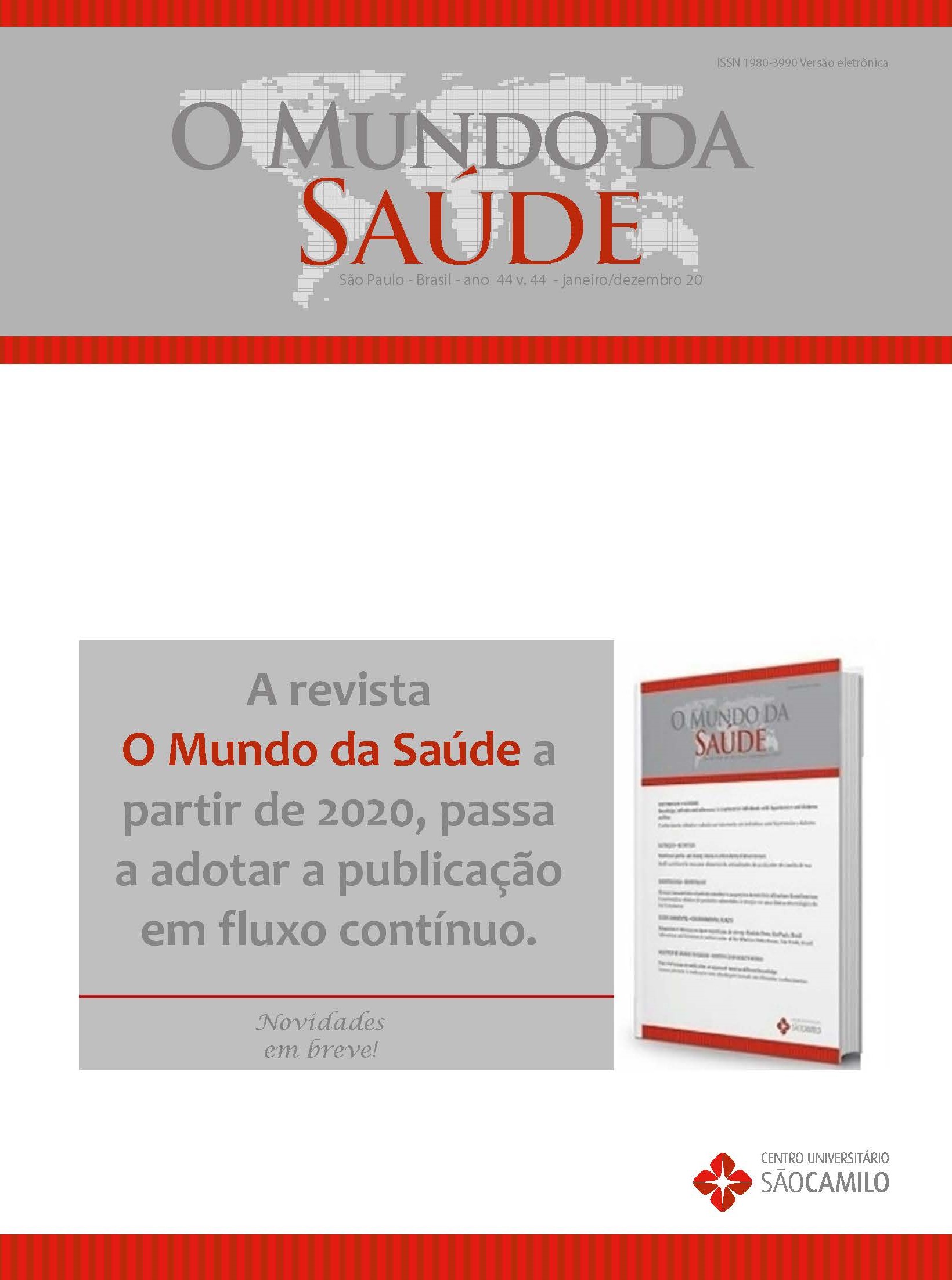Development of MiniCEX to assess nurses' clinical skills concerning medication
DOI:
https://doi.org/10.15343/0104-7809.202044465474Keywords:
Skill-Based Education, Educational Evaluation, Clinical procedures, Clinical skill, NursingAbstract
The clinical practice of nurses requires the development of skills that directly imply the safety and quality of care. The Mini
Clinical Evaluation Exercise (MiniCEX) is a tool for evaluating clinical practice in real contexts that helps the self-regulation
aspect of the learning experience based upon feedback at the end of each evaluated moment. This study aimed to build
a MiniCEX for nurses and undergraduate nursing students, on clinical skills in the process of preparing, administering, and
monitoring medications. This is developmental research. The theories that supported the methodological route were: Patricia
Benner's model for the development of clinical skills in nursing; David Kolb's Experiential learning theory; the Medication
System described by Cassiani et al.; the Patient Classification Instrument per complexity of nursing care, according to the
area of care, proposed by Fugulin, Gaidzinski and Kurcgant; and, the assumptions of the National Patient Safety Program,
focusing on safety in medication practice. Thus, three competencies were organized: preparation, administration, and
monitoring of patients using drugs. As feedback is essential in MiniCEX, the studies by Hattie and Timperley, and Hattie and
Clarke on feedback in the teaching-learning processes were considered. Thus, it is possible to characterize the MiniCEX
outlined as an instrument for educational assessments, capable of developing specific nursing skills, which can be used both
for nursing students during the practice of internships, as well as for monitoring and assessing the medicating skills of novice
nurses to a given clinical setting.
Downloads
References
estratégia para gestão de pessoas. Rev Bras Enferm. 2016; 69(1):130-7. http://dx.doi.org/10.1590/0034-7167.2016690119i.
2. Amin Z, Chong YS, Khoo HE. Practical Guide to Medical Student Assessment. Hackensack (NJ): World Scientific; 2006. https://doi.
org/10.1142/6109.
3. Liu Y-P, Jensen D, Chan C-Y, Wei C-J, Chang Y, Wu C-H, et al. Development of a nursing-specific Mini-CEX and evaluation of the core
competencies of new nurses in postgraduate year training programs in Taiwan. BMC Med Educ. 2019; 19(270):1-10. https://dx.doi.
org/10.1186/s12909-019-1705-9.
4. Wei C-J, Lu T-H, Chien S-C, Huang W-T, Liu Y-P, Chan C-Y, et al. The development and use of a pharmacist-specific Mini-CEX for
postgraduate year trainees in Taiwan. BMC Med Educ. 2019;19(165):1-8. https://dx.doi.org/10.1186/s12909-019-1602-2.
5. Lörwald AC, Lahner F-M, Nouns ZM, Berendonk C, Norcini J, Greif R, et al. The educational impact of Mini-Clinical Evaluation
Exercise (Mini-CEX) and Direct Observation of Procedural Skills (DOPS) and its association with implementation: A systematic review
and metaanalysis. PLoS ONE. 2018; 13(6): e0198009. https://doi.org/10.1371/journal.pone.0198009.
6. Immonen K, Oikarainen A, Tomietto M, Kääriäinen M, Tuomikoski A , Kaučič BM, et al. Assessment of nursing students’ competence
in clinical practice: A systematic review of reviews. Int J Nurs Stud. 2019;100:103414. https://doi.org/10.1016/j.ijnurstu.2019.103414.
7. Hemingway S, Baxter H, Smith G, Burgess-Dawson R, Dewhirst K.
Collaboratively planning for medicines administration competency: A survey
evaluation. J Nurs Manag. 2011; 19(3):366–376. https://doi.org/10.1111/j.1365-2834.2011.01245.x
8. Goodstone L, Goodstone MS. Use of simulation to develop a medication administration safety assessment tool. Clin Simul Nurs.
2013; 9(12): e609-e615. http://dx.doi.org/10.1016/j.ecns.2013.04.017.
9. Cancino KD, Arias M, Caballero E, Escudero E. Desenvolvimento de um instrumento de avaliação da administração segura de
medicamentos para estudantes de enfermagem. Rev Latino-Am Enfermagem. 2020; 28:e3246. http://dx.doi.org/10.1590/1518-
8345.2989.3246.
10. World Health Organization. Medication without harm: global patient safety challenge on medication safety [Internet]. Geneva:
WHO, 2017 [acesso em 20 janeiro 2020]. Disponível em: https://www.who.int/patientsafety/medication-safety/medication-withoutharm-
brochure/en/
11. Conselho Regional de Enfermagem de São Paulo (BR). Uso seguro de medicamentos: guia para preparo, administração e
monitoramento [Internet]. São Paulo: COREN-SP, 2017 [acesso em 20 janeiro 2020]. Disponível em: https://portal.coren-sp.gov.br/
wp-content/uploads/2010/01/uso-seguro-medicamentos.pdf
12. Teixeira PMM, Megid Neto J. Uma proposta de tipologia para pesquisas de natureza interventiva. Cienc Educ Bauru. 2017;
23(4):1055-76. http://dx.doi.org/10.1590/1516-731320170040013.
13. Benner P. De iniciado a perito: excelência e poder na prática clínica de enfermagemEditora; 2001.
14. Kolb DA. Experiential learning: experience as the source of learning and development. 2ª ed. Upper Saddle River (NJ): Pearson
Education, Inc.; 2015.
15. Hattie J, Timperley H. The Power of Feedback. Rev Educ Res. 2007; 77(1): 81-112. https://doi.org/10.3102/003465430298487.
16. Hattie J, Clarke S. Visible Learning: Feedback. Abingdon (Inglaterra): Routledge; 2019. https://doi.org/10.4324/9780429485480
17. Cassiani SHB, Teixeira TCA, Opitz SP, Linhares JC. O sistema de medicação nos hospitais e sua avaliação por um grupo de
profissionais. Rev Esc Enferm USP. 2005; 39(3):280-7. http://dx.doi.org/10.1590/S0080-62342005000300005.
18. Fugulin FMT, Gaidzinski RR, Kurcgant P. Sistema de classificação de pacientes: identificação do perfil assistencial dos pacientes
das unidades de internação do HU-USP. Rev Latino-Am Enfermagem. 2005; 13(1):72-8. http://dx.doi.org/10.1590/S0104-
11692005000100012.
19. Brasil. Ministério da Saúde (BR), Portaria nº 529, de 1º de abril de 2013. Institui o Programa Nacional de Segurança do Paciente
(PNSP). Diário Oficial [da] República Federativa do Brasil. Brasília (DF); 2013 [acesso em 20 de janeiro de 2020]. Disponível em: http://
bvsms.saude.gov.br/bvs/saudelegis/gm/2013/prt0529_01_04_2013.html.
20. Miller GE. The assessment of clinical skills/competence/performance. Acad Med. 1990; 65(9):S63-7. https://dx.doi.
org/10.1097/00001888-199009000-00045
21. Draganov PB, Andrade AC, Neves VR, Sanna MC. Andragogia e seu uso na enfermagem: uma revisão da literatura. Invest
Educ Enferm [Internet]. 2013 [acesso em 20 novembro 2019];31(1):86-94. Disponível em http://www.scielo.org.co/pdf/iee/v31n1/
v31n1a11.pdf.
22. Panúncio-Pinto MP, Troncon LE de A. Avaliação do estudante: aspectos gerais. Medicina (Ribeirão Preto). 2014; 47(3):314-23.
https://doi.org/10.11606/issn.2176-7262.v47i3p314-323
23. Norcini J, Burch V. Workplace-based assessment as an educational tool: AMEE guide no. 31. Med Teach. 2007; 29(9):855-71.
https://dx.doi.org/10.1080/01421590701775453
24. Djuria SA, Moh. A. Development of Measurement Tool Mini-CEX (Mini Clinical Evaluation Exercise) as an Evaluation Tool of Nursing
Students in Teaching Hospital of Universitas Muhammadiyah Yogyakarta. GSTF J Nurs Health Care [Internet]. 2013 [acesso em 20
janeiro 2020]; 1(1):127-33. Disponível em http://dl6.globalstf.org/index.php/jnhc/article/view/170
25. Amila A, Hasibuan EK, Sinurat LR. The Effectiviness of Mini-Cex Towards Clinical Competency Achievement in Neurological
Examination of Clinical Practice Nursing Students. INJEC. 2017;2(2):208-15. http://dx.doi.org/10.24990/injec.v2i2.159
26. Huang SY. The Experience of Mini-Clinical Evaluation Exercise (Mini-Cex) of Nursing Education for Clinical Preceptors. BMJ Open.
2015;5(Suppl1):A1–A53. http://dx.doi.org/10.1136/bmjopen-2015-forum2015abstracts.89






























